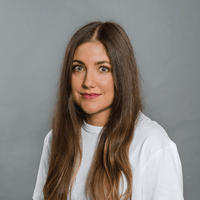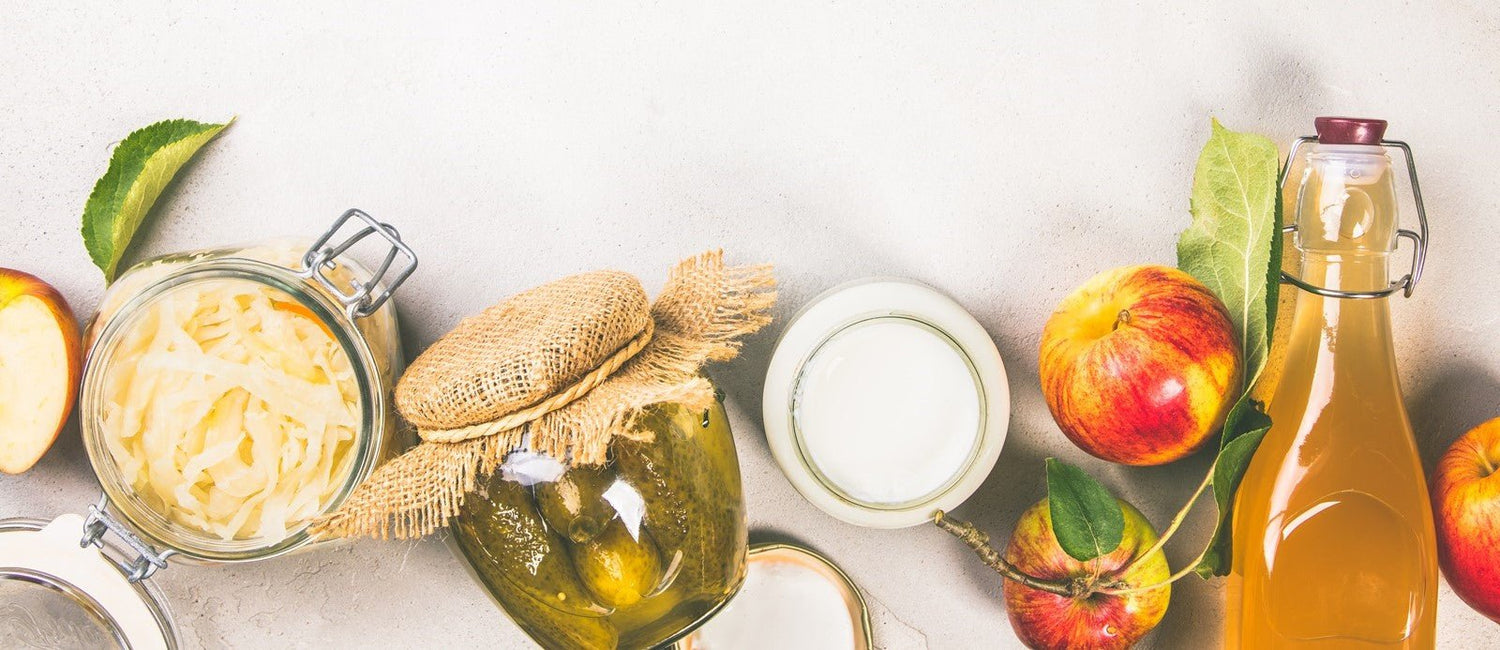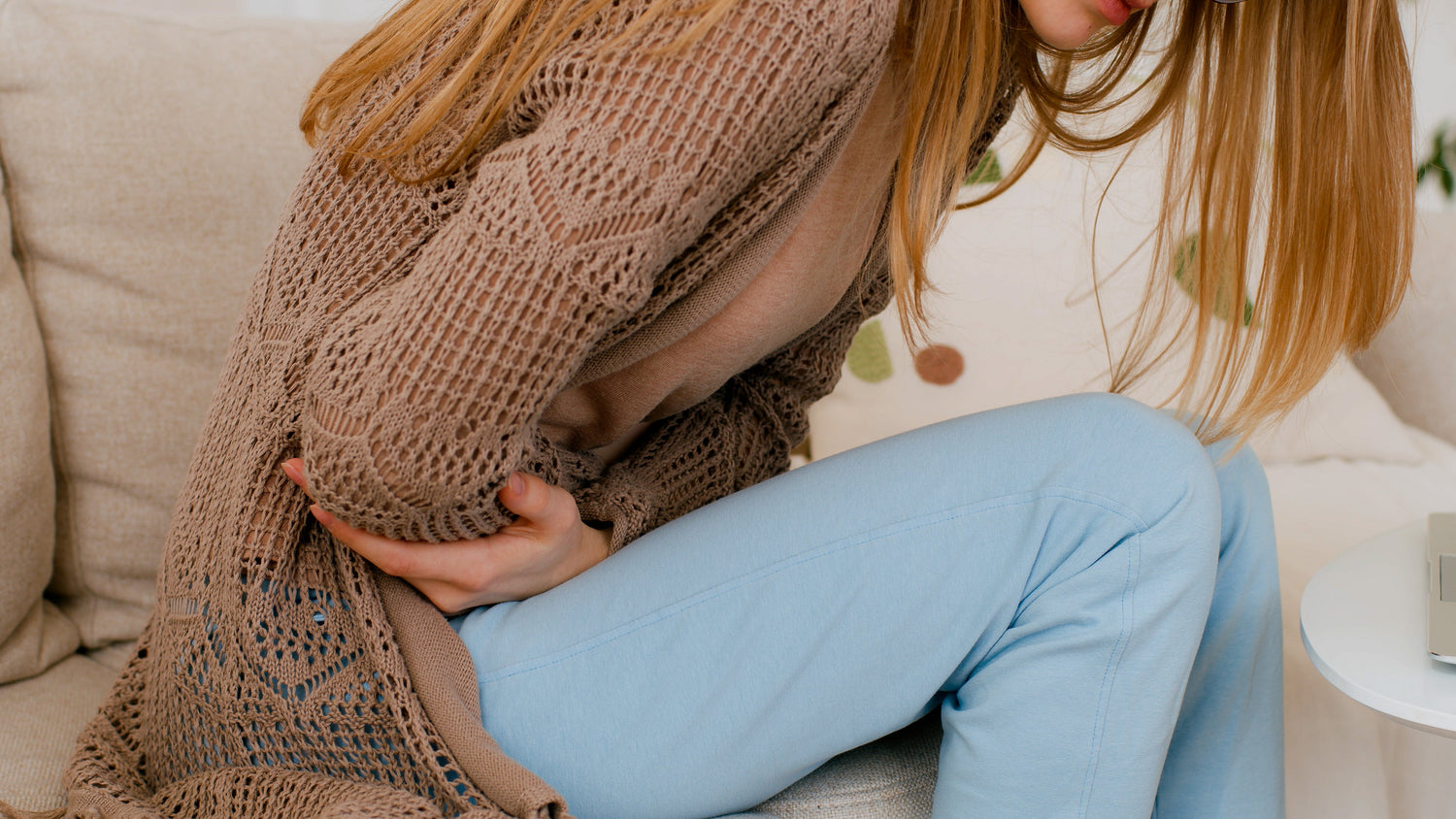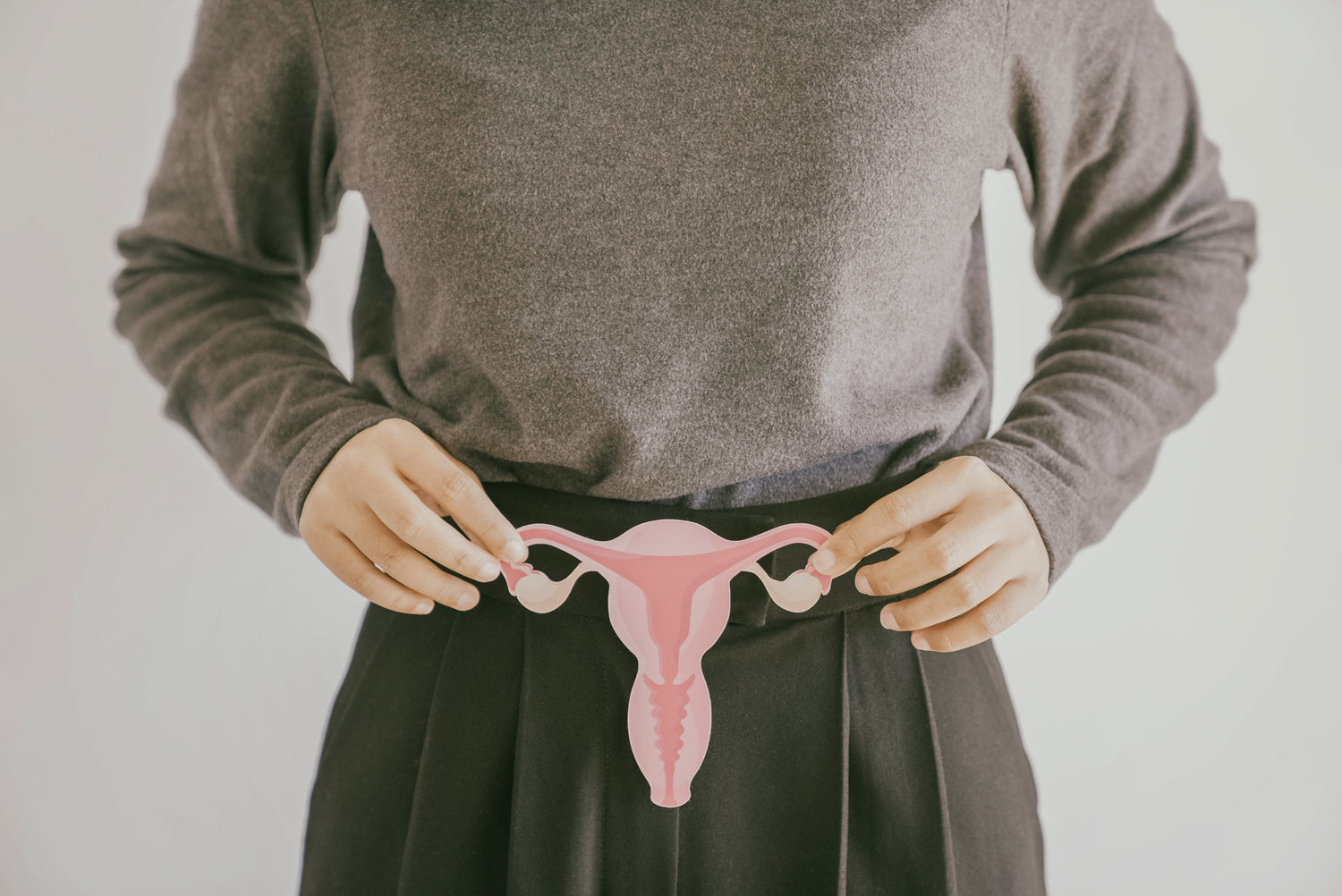Table of contents
- Paleo – for those who don’t know it yet, what does that mean exactly?
- And what makes Paleo360 special?
- Why did you choose the Paleo diet?
- What positive things have changed for you?
- In a study with the Hadza indigenous people, it was found that their seasonal and natural diet contributes to a healthy microbiome and higher diversity. What's your opinion?
- What does a typical “What I eat in a day” look like for you?
- What are common mistakes made when switching to Paleo?
- How does Paleo affect intestinal health, do you have any experience with it?
- Do you have any tips on which Paleo foods can have a positive effect on the microbiome?
- paleo360.de – who should definitely visit your site, what can they expect?
- Do you have a special offer for people interested in Paleo and gut health?
- Brilliant! Thank you Anja for this exciting interview!
You've probably heard of Paleo before. Paleo means something like Stone Age diet and is based on the original diet of hunters and gatherers. We wanted to know more about what exactly it means to eat a Paleo diet, what benefits this diet has, including for our intestinal health and what a typical day looks like. We have Anja from Paleo360.de interviewed and received exciting answers.
Paleo – for those who don’t know it yet, what does that mean exactly?
Paleo is a shortened form of the term Paleolithic , a described geological period in earth history. This phase is also described as the Paleolithic, and the people who lived back then are also referred to as hunters and gatherers. Also indicative of their lifestyle. The geological era is described up to around 10,000 years ago - a period in which, depending on the region, agriculture and livestock breeding were also established.
Seen in the larger context, humans have undergone enormous changes in their way of life in the last 10,000 years and especially in the last decades and a few centuries of industrialization. From hunter-gatherers to sedentary people. This change in the way of life and also the living space in a relatively short period of time meant that, for example, ours Digestion and biomechanics could not keep up with the new developments. In other words: our newly created habitat does not match our genetics and the expression of them that have developed over thousands of years.
These scientific findings are now being transferred to people and their health status. Diseases of civilization such as obesity, inflammatory symptoms, high blood pressure, Alzheimer's, cancer, etc. are not a fate of people, but rather a consequence of their lifestyle and the context in which they live - their living space.
Basically, dealing with Paleo means – Thoughts for me to remember what it means to be human. Where we come from, how I want to live my life, and the evolutionary perspective is taken for these considerations. And of course, health is a strong anchor for this consideration.
Incidentally, Boyd Eaton, among others, laid the scientific basis for Paleo with the popular science book "The Paleolithic Prescription" . He already predicted that the Stone Age aspect would probably be made fun of. It was never meant that we should go back to the Stone Age. It has always been about classifying the findings about our evolutionary origins in the modern and contemporary context. The Paleo concept was of course easily marketed with the term Stone Age diet and was often misunderstood.
Because of course, technology – the “modern” tools are of course part of it. I don't want to go back to the Stone Age. On the one hand, people and their environment are evolving, and on the other hand, in my opinion, it is worth using modern tools sensibly so that we can shape our lives accordingly. However, we should ask ourselves more often what world we want to live in. And whether the world we have created for ourselves is really good.
Expressed differently: It's worth learning how to use tools so that they can be used well and sensibly. And we should primarily use our creative power for valuable and meaningful things.
In summary: Our sedentary, civilized and alienated way of life can make us sick in various ways. Various human needs are not adequately met. And this is exactly where the Paleo idea comes in. He reminds us what it means to be human. And combines this with today's conditions and technologies - in order to live healthy again and prevent illness. With Paleo360 we translate this knowledge into practical advice. And inspire change in the areas of nutrition, exercise, sleep and relationships - with yourself and others.
And what makes Paleo360 special?
With At Paleo360 we see ourselves as a company that wants to reach people directly and pass on impulses and inspiration for a healthier lifestyle. We want to remember what it means to be human. We want to pass on information and tools that enable people to to be able to make better decisions for yourself and your own life .
In addition to the very individual benefits that can arise from this, I see the value of Paleo360 also a national and economic benefit. We contribute to healthy people in Germany, who can then better express their human performance, also often referred to as potential . Of course, our concept does not stop at the borders of Germany and German-speaking people. So far, however, we have chosen our native language for communication.
Why did you choose the Paleo diet?
Exciting question! Looking back, I can formulate several aspects for myself here:
This feeling of power - yes, I can do something for myself and my health . I may be at the mercy of many environmental factors, but not at the mercy of fate.
I've already had one Fructose intolerance and irritable bowel syndrome supposed. At the moment I'm on Paleo and also Paleo360 caught on. Diets didn't make any sense to me in terms of digestion, but I tried them anyway. With Paleo360 I became aware of a concept that... holistically, evolutionary and in a larger context looks at people. And it also indirectly promised even more joy and pleasure in life. I have now been able to put together a good toolbox from which I can choose what is right for me and my health and its development. In retrospect, I'm glad that a doctor gave me the label "psychosomatically caused complaints" at the time. Back then I didn't seem to want to understand how much my health is related to my psyche and my life situation and lifestyle . Today I am grateful for that.
It was also a professional decision for me. While I was still studying toxicology, I became self-employed and, among other things, worked for and with the team at Paleo360 worked. I had aspired to an academic career, but I also had experiences that made me reflect on this goal clearly again.
What positive things have changed for you?
We were able to gain different positive experiences. Be it better dealing with autoimmune diseases, asthma, allergies, food intolerances or achieving peak sporting performance and finding meaningful work...
Specifically, the following happened to me:
My attitude towards my body and my life has changed for the better over the years. I can now make decisions more based on my gut and my heart. Thought is a valuable tool, but not my primary decision maker. I can now eat anything I want. I can better assess and classify digestive problems and pain in the body.
I was quite excited by the idea of resilience and even anti-fragility, which I first learned about through Nicholas Nassim Taleb and also in the Paleo network. I trust myself and my body much more. In other words, I'm more likely to know how to set my boundaries and value my long-term health. I have now also been able to complete a long distance (known to many as Ironman, one of the organizers of long distance triathlons). And I wasn't particularly sporty when I was younger. I just did it. In my own way. The experience will always stay with me and has strengthened my confidence in myself and my body.
And so everyone in the Paleo360 team, and everyone who discovers Paleo and Paleo360 for themselves, also has their own story. And that's what's cool and valuable about it.
In a study with the Hadza indigenous people, it was found that their seasonal and natural diet contributes to a healthy microbiome and higher diversity. What's your opinion?
I am fascinated by indigenous peoples and their ways of life, even though I certainly don't know much about them. And I think we can draw inspiration from the above-mentioned statement. And remember where we come from and whether a different way of life - one more aligned with the rhythms of nature - doesn't make more sense. This is already reflected in a seasonal diet. I also think a diet that consists of as many natural foods as possible makes sense.
“It’s important to me to deal with nutrition in a relaxed manner.” – Anja from Paleo360
What does a typical “What I eat in a day” look like for you?
In the morning: Sourdough bread and fried eggs and sausage.
Rarely lunchtime, rather small snacks, if at all.
At evening: Warm and often vegetable-heavy. Often also fish or meat.
I also really enjoy eating chocolate, especially those with a high cocoa content. I continue to eat kebabs, pizzas from pizzerias, rolls, pasta, etc. – but less often and also more consciously . Eating pasta has really become a highlight. A relaxed approach to nutrition is important to me.
What are common mistakes made when switching to Paleo?
Phew, good question. Wanting to change everything at once. Changes simply require patience, time and also love (i.e. the necessary attention). And this is a process that works best step by step. Relinquish responsibility for your own decisions. See nutrition as one of the main levers. However, it could be much more effective to do this Sleep behavior, stress levels and relationships with yourself and others, as well as movement patterns of the day to look at.
We are used to only looking at one aspect and looking at it very closely. An analytical perspective. For a holistic view, however, it is necessary to be willing to explore multiple perspectives on an issue as being of equal value and then to make decisions as to which direction it is now right and important to act. And that looks different for every person. Another mistake would be to expect a solution that is already valid for everyone.
How does Paleo affect intestinal health, do you have any experience with it?
Personally, I have had primarily good experiences. I can now eat anything I want again. Even when I'm out and about, I don't have to worry about something that I can't tolerate. Depending on your state of health, the results can of course vary. Building intestinal health and being able to tolerate everything that wants to be eaten - I think that's a sensible goal.
In the process of this, I think it is important not to be satisfied with diagnoses. They are an important step in assessing and determining your health status. However, the body has a lot of regeneration potential, which we have to allow. And in my opinion, this process begins in the mind with the desire to regenerate with a decision.
Do you have any tips on which Paleo foods can have a positive effect on the microbiome?
If we now talk about the intestinal microbiome, then there are definitely the typical tips - such as a diet rich in fiber, vegetables and nutrients and incorporating certain herbs and spices. Fermented foods are also often mentioned.
I am committed to mentioning meat and other animal foods as positive for the microbiome. There are mutliple reasons for this. For example, I have personally discovered over the years that meat, eggs and dairy products are good for me, especially at times. Some people even have real healing success as soon as they eat only animal foods - as is the case with a carnivorous diet. In addition to the choice of food, I think it is crucial - if not more important than the choice of food - to look at digestion and its functionality: So how well do I digest? And how can I support and improve my digestion? Am I producing enough stomach acid? How well can my liver and gallbladder produce bile secretion and bile acids to digest fat? How is my pancreas and its activity? What is the condition of my intestinal lining and its productivity and ability to contribute to better digestion? Many people are already familiar with leaky gut syndrome – a compromised intestinal barrier.
Improving digestion, improving the function of the intestinal barrier – I think that’s the right approach. With good analytical tools like those from mybioma , you can gain an important insight into what is really happening in the intestines. And clearly, there are so many factors that affect the microbiome, and diet is only part of it. Physical posture, such as how tense and moving the abdominal area is, also plays a crucial role in digestion. Only the function of the diaphragm (keyword diaphragmatic breathing) and also the state of activity of the hip flexor muscle Psoas Major are crucial for digestion. As I said, diet is just one lever that affects the intestinal microbiome. And for many people this may only be a factor of little relevance to improving digestion.
paleo360.de – who should definitely visit your site, what can they expect?
Anyone who is ready to take responsibility for their own health and wants to approach this process holistically. Anyone who has the ability to think outside the box and expand their own horizons. You can also have the ability to question critically - because that should also happen with our content and information. But here we are again at the point of personal responsibility.
With Paleo360 we can provide you with inspiration and impulses that can help relieve intestinal problems, high blood pressure, back pain, neck pain, headaches and autoimmune diseases. In other words, symptoms that occur within and in connection with our way of life.
What generally moves us is To pass on inspiration and impulses for a sustainably happy and healthy lifestyle. We don't want to create unnecessary dogma and accompany people on their way to a calm and appreciative attitude towards life. And this appreciation can also be transferred to food and its added value. Values that accompany us are openness, appreciation, authenticity, humanity and creativity. And of course, overall it's about health and making responsible decisions.
We are also committed to strengthening the connection between farmers and non-farmers. After all, farmers are the people who produce our food, shape the cultural landscape and significantly influence ecosystems. And they deserve appreciation and support in their important work. If you are interested in this, you should definitely stop by!
Do you have a special offer for people interested in Paleo and gut health?
Sure, we have a lot ready:
If you want to learn helpful and cool things about the microbiome, check out the corresponding article on the microbiome . There is an introduction and practical tips on the subject of fermentation. And for those who want more, we have a gut health e-book. A 7-day reset is also described here, which is intended to help build intestinal health in the short term through diet.
The 30 day challenge is of course a good way to get started quite helpful. The 30 days can be truly life-changing – and we are happy to accompany and support them in our own way.
Brilliant! Thank you Anja for this exciting interview!
By the way: In an interview with Britta from the blog Life with Irritable Bowel Disease Find out how she also got her symptoms under control with the Paleo diet.
Note
This article is intended for






